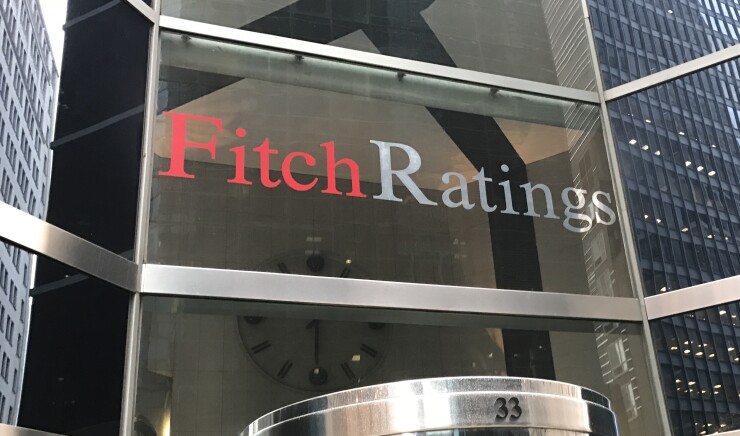CHICAGO – With new, recurring state funding to count on, Chicago Public Schools won a one-notch upgrade in its general obligation rating that moves it three notches away from investment grade.
Triday's Fitch Ratings upgrade of the Chicago Board of Education’s unlimited tax GO and issuer default ratings to BB-minus from B-plus applies to about $7 billion of debt, and new money being sold in a transaction slated for next month. Fitch also revised its outlook to stable from negative.
The upcoming issue for about $900 million is expected to offer multiple series including GO refunding series for $360.4, $81.3 million, $22.5 million, and $168.3 million with a portion taking out paper that carries a 9% rate. The new money will come in a $225 million GO series along with a $64.4 million capital improvement tax-backed series.
Fitch also affirmed its A rating on the CIT-backed bonds, which affects the new CIT-backed issue and $730 million of bonds issued last year in what was the district’s inaugural use of the new credit that benefits from a structure designed to insulate revenues from impairment in Chapter 9.

The GO deal totals $857 million although the size of the refundings is subject to change.
The upgrade “reflects improved prospects for financial balance and eventual restoration of a positive reserve position,” Fitch wrote. “The district is slated to receive significantly more ongoing state aid under the new state funding framework, both for operations and for pension expenses.”
The state's new education funding formula and budget package provided CPS with more than $300 million of help in the form of $221 million for teachers’ pension payments and $100 million in operating aid. The state also gave the district authority to bypass state property tax caps with a special pension levy for about $130 million.
“Financial pressures will remain, but the additional funding and revised funding framework should improve the amount, timing and potential volatility of state aid to CPS and allow for reversal of the previous downward trajectory,” Fitch wrote.
Fitch said it expects the expense growth will outpace revenue and further cutting could be difficult to achieve. The district’s long-term liabilities are elevated, but still in the moderate range.
To stay afloat, the district drained its reserves to deal with prior year deficits and turned to other one-shots like debt restructurings, a three-year partial pension holiday, and a shift in when collected property taxes. Along the way, it sunk to junk and over the last several years has relied heavily on costly short-term borrowing to keep schools open.
Reserves were completely exhausted in fiscal 2016 which ended with an accumulated general fund deficit of $127 million. Estimated fiscal 2017 results suggest the accumulated general fund deficit deepened to $271 million.
“Fitch expects budgetary balance to improve over time, given expected gains under the new state funding formula,” analysts wrote. “The new formula should also improve cash flow timing and liquidity from current very weak levels.”
Risks remain. “The rating is sensitive to the reemergence of liquidity pressures, which could stem from state funding cuts, expenditure pressures or an economic downturn,” Fitch added.
The district which faced a $550 million in its fiscal 2018 budget is also receiving $80 million from the city to help cover security costs, but it’s unclear whether that funding can be counted annually. CPS serves 370,000 students at 661 schools.
The board revised the district’s budget on Wednesday to reflect the additional city and state funding. It targets an ending general fund balance of $178 million, or about 3% of spending and it could rise to $383 million, 7% of spending, if CPS executes the tentative debt restructuring, Fitch said.
“If achieved, such a cushion would represent a material improvement over past performance but would still provide only limited gap closing capacity in a downturn or other unexpected operating, funding or liquidity stress,” Fitch said.
“CPS is on much stronger financial footing that we were just a few months ago," CPS Chief Executive Officer Forrest Claypool said in a statement issued after the upgrade. "While work remains, Chicago’s students can learn this year with no interruptions from midyear cuts."
Moody's Investors Service on Sept. 5 revised its outlook on the board's B3 rating to stable from negative.





